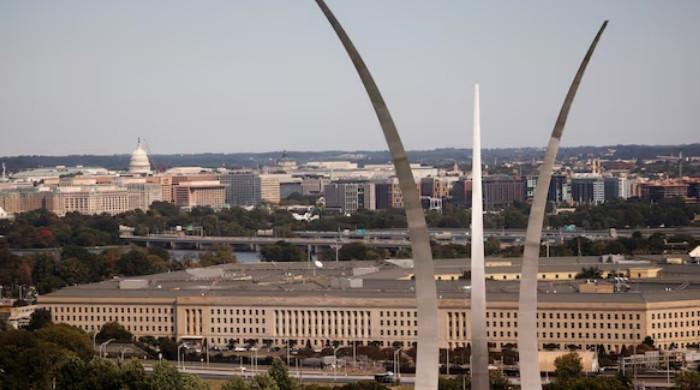 |
| The Pentagon building is seen in Arlington, Virginia, US October 9, 2020 — REUTERS/File Photo |
Pentagon Imposes Stricter Media Rules: Journalists Must Sign Non-Disclosure Pledge
The Pentagon building is seen in Arlington, Virginia, US October 9, 2020 — REUTERS/File PhotoWASHINGTON: The Pentagon has imposed new restrictions on media covering the US military, requiring them to pledge not to disclose anything not formally authorised for publication and limiting their...
In a major shift in U.S. military media access, the Pentagon has introduced new rules restricting how reporters cover the Department of Defense. A 17-page memo now requires credentialed journalists to sign an affidavit stating they will not publish anything not officially approved — even if the content is unclassified.
Under the updated guidelines, media coverage of the military will be tightly controlled: reporters may lose their Pentagon access credentials if they reveal “unauthorized” information, attempt unauthorized access, or publish from unnamed sources. The rules also restrict reporter movements inside the Pentagon—many areas now require official escorts, and journalists can no longer freely roam corridors.
Defense Secretary Pete Hegseth defended the policy, posting that “the press is no longer allowed to roam the halls of a secure facility. Wear a badge and follow the rules — or go home.” Critics argue the policy is a severe blow to transparency and press freedom. The National Press Club and press organizations warn that this effectively lets the government control what the public can learn about military operations.
Some confusion remains: while the memo states that even unclassified material must be approved before release, Pentagon spokespersons later claimed that journalists aren’t strictly required to clear every story, prompting ongoing debate over how much control the Pentagon truly seeks.
FAQs
Q: What exactly do the new Pentagon media rules require?
A: Journalists covering the military must sign a pledge not to publish material unless it’s formally authorized, even if the content is unclassified.
Q: What happens if a reporter violates the rules?
A: They risk losing their Pentagon credentials, being denied access, or being charged with unauthorized disclosure.
Q: Why is this controversial?
A: Many see it as a suppression of press freedom and a move toward censorship, since key reporting elements (like unnamed sources) are severely constrained.Q: Does this apply to classified or unclassified information?
A: The rules cover both classified and controlled unclassified information; even “unclassified” content must be pre-approved.Q: Are there exceptions or clarifications?
A: Some Pentagon officials later claimed journalists are not required to submit every story for approval, introducing ambiguity into enforcement.
Tags
World
